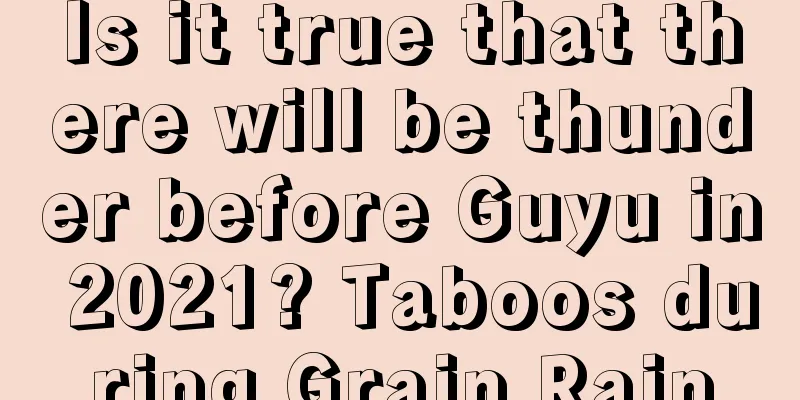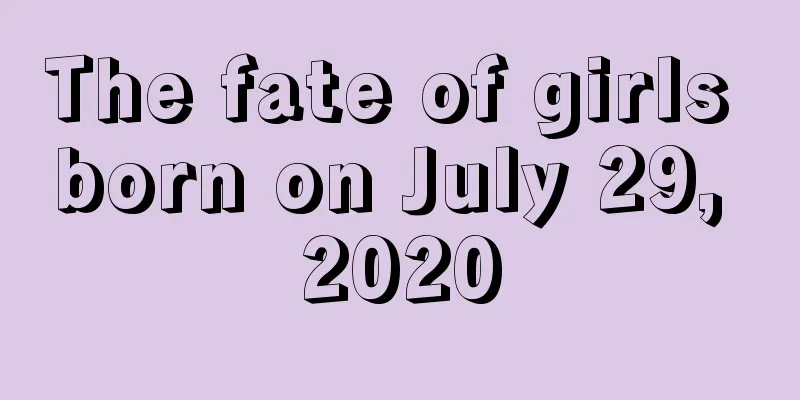What day is March 3rd in 2018? Which ethnic festival is it?

Introduction: Our country is a traditional multi-ethnic country, so different ethnic groups have their own traditional festivals, and March 3rd is one of them. So what day is March 3rd in 2018? Which ethnic festival is it? The Fortune Teller website has carefully compiled detailed information about the third month of the lunar calendar in 2018. Come and take a look at Mr. Shui Mo!What day is March 3rd in 2018? Which ethnic festival is it?March 3, 2018 Date: Wednesday, April 18, 2018 (March 3 of the Year of the Dog, 6 days away from the 2018 Lunar Shangsi Festival)The third day of the third lunar month is a traditional festival for many ethnic groups in China, with the Zhuang ethnic group being the most typical. In ancient times, young Zhuang men and women gathered on the streets to sing and gathered by the river for feasts. In the Central Plains, there is a tradition of worshipping ancestors and worshipping Xuanyuan on March 3rd; in the Zhuang ethnic group's legends of Pangu and Buluotuo, this day is also Pangu's birthday. The third day of the third lunar month is not only a traditional Zhuang outing and singing festival, but also an important day for the Zhuang people to worship their ancestors, including Pangu and Buluotuo. It is also a traditional festival for the Zhuang, Yao, Dong, Miao, Han and other ethnic groups in Guangxi. The song festival is not only a grand event for promoting national culture, but also a grand event for national economic exchanges. According to records, the song festival has a history of thousands of years. The development of Zhuang folk songs is particularly prominent, and singing parties are very popular. In ancient times, young men and women gathered on the streets or by the river to feast and sing. In the Qing Dynasty, large-scale "singing festivals" were formed, with hundreds or even thousands of people singing together. Which ethnic group's festival is March 3rd?Han nationality <br /> March 3, also known as Shangsi Festival in ancient times, is a festival to commemorate the Yellow Emperor. According to legend, March 3rd is the birthday of Emperor Huangdi. There is a saying in ancient China that "On February 2nd, the dragon raises its head; on March 3rd, Xuanyuan is born." After the Wei and Jin Dynasties, the Shangsi Festival was changed to March 3rd, and it was inherited by later generations, thus becoming a festival for the Han people to feast by the water and outing in the suburbs in spring.The Han nationality has the custom of eating shepherd's purse flowers and boiled eggs. On that day, people would engage in activities such as flowing cups, flowing eggs, flowing dates, begging for children, wearing willow wreaths, visiting spring, outing, eating clear rice and singing parties. The Han people celebrate the March 3rd Festival. In addition to offering sacrifices, the festival has gradually developed into other folk activities such as playing by the river, meeting men and women, planting willows and appreciating flowers. Zhuang Nationality <br /> March 3 of the lunar calendar is a grand festival for the Zhuang people. It is said to be a festival formed to commemorate the Zhuang singing fairy Liu Sanjie, so it is also called the Singing Fairy Festival. On March 3rd, people go to singing fairs, set up singing tents and hold singing parties, where young men and women sing songs, tap eggs, throw embroidered balls and talk about love. The Zhuang ethnic group often visits graves on March 3rd and usually steams five-color glutinous rice on that day. The singing festival usually opens with folk songs, showing the cultural customs of people who are good at singing and dancing. Thousands of people dance the bamboo pole dance together. Each square has the characteristics of Zhuang. People hold five-color glutinous rice, hold Zhuang wine, carry hoes for work, and hold exquisite winnowing baskets in their hands. Dong people <br /> Dong people have a legend that in ancient times, the original territory of the Dong people always regarded the flowering of tung trees as the rice planting festival. But one year the tung trees did not bloom, and as a result the farming season was missed, the people had to flee to Baojing area. In order to learn from the past lessons, every March 3rd day people play the reed pipe and sing, visit relatives and friends, and remind each other to busy themselves with farming. The Dong people often hold activities such as grabbing fireworks, bullfighting, horse fighting, singing, and stepping on the hall during festivals, which is also called the "Fireworks and Firecrackers Festival." Early in the morning, the girls would go to the vegetable garden to pick half a basket of vegetables, wash them, dress up, and gather under the Moga tree. The young men waiting there would wait for an opportunity to ask their ideal girl for the basket. The one who got the basket would agree with the girl on a date to return the basket, and would give her fruits and cloth in return. Once upon a time there was a young man and woman in love, and the girl's mother promised her to a wealthy businessman, and they were scheduled to get married on the fourth day of March. On the third day of the Chinese New Year, the couple in love jumped into the pond under the Moga tree, filled with grief and anger, to commit suicide. To commemorate them, local young people come here on March 3rd every year to play the sheng and sing songs, breaking free from the shackles of arranged marriages. Miao "March 3rd" is also known as the "Onion Picking Festival". It evolved from the ancient love festival of young men and women of the Miao ethnic group. It is said that every March 3rd day, men and women gather together on the hillside in the name of picking wild onions and show their love to each other. They talk and sing Miao songs while picking wild onions. This custom has continued to this day. On this day, Miao girls dress up and come to a fixed place to show off their beauty. The young men are also waiting for this day. They have the opportunity to meet many girls and sing with them. If they like each other, they can be taken home immediately. So after the concert, you can see a lot of men and women hustling each other. Yao "March 3rd" is also known as the "Ganba Festival". Before "March 3rd" every year, Yao men go to the old forest a week in advance to hunt and kill wild animals, go to the river to catch fish and shrimps, and roast them into dry food to take home. Women went up the mountain to pick indigo leaves and other natural dyes, boiled them in water and dyed them into glutinous rice in four colors: red, yellow, blue and purple. This tradition was passed down year after year to this day. The Yao ethnic group also regards March 3rd as a singing festival. In addition to singing preface songs, tea songs, and dispersion songs, they also sing songs of complaining and songs of thanking the immortals, but rarely sing love songs. When eating and drinking, wine, tea and the like are indispensable. Summary: The above content is about [What day is March 3rd in 2018, and which ethnic festival is it? 】Problem analysis, hope it can help everyone! |
<<: What characters are suitable for naming a baby born on March 3rd?
Recommend
The 18th day of the 11th lunar month in 2018 is a good day?
The eleventh month of the lunar calendar is the w...
What are the do’s and don’ts for the 12th day of the 10th lunar month in 2019?
What are the do’s and don’ts for the 12th day of ...
Is it a good idea to open a new store on the 14th day of the fourth lunar month in 2019?
April is also known as Mengxia, Yinyue and Meiyue...
Check the auspicious date for September 17th in the lunar calendar in 2021. Is this day an auspicious day for a haircut?
Choosing an auspicious day is an ancient custom of...
Do babies born on the 24th day of the sixth lunar month have good fortune? Can you achieve success in your career?
Introduction: A new life is born into this world e...
Is it a good idea to move house on October 20th of the lunar calendar in 2018?
The wind in the tenth month of the lunar calendar...
What day is the fourth day of the ninth lunar month in 2017? Solar term Frost Descent? What are the customs?
Introduction: The arrival of different solar terms...
Guyu - What does it mean for people born in the middle of March? Are they earth-loving people?
Everyone's destiny is different, and destiny i...
Can I start renovation on the fourth day of the ninth lunar month in 2018? What is the fortune on this day?
In many places, women other than the homeowner are...
Can I get a haircut on March 27th of the lunar calendar in 2021? Is the hexagram for the day good?
The quality of a haircut at different times is als...
Is August 17th of the lunar year of the Tiger 2022 a good day for a haircut?
Is August 17th of the lunar year of the Tiger 2022...
Can I have a haircut on September 25th of the lunar calendar in 2021? Is it auspicious or inauspicious to have a haircut?
Feng Shui is important for every part of the body,...
Is the 23rd day of the seventh lunar month in 2018 suitable for praying? How auspicious or inauspicious is the time?
In traditional customs, in order to bless their re...
How is the fifteenth day of the first lunar month in 2022? Is that an auspicious day?
Different days have different qualities of good an...
Are children born on the sixth day of the sixth lunar month in 2021 Cancer?
Children born at different times have different zo...









